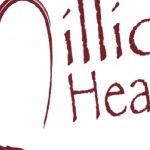Million Hearts Aids in Controlling High Blood Pressure
The U.S. Department of Health and Human Services and the Million Hearts Initiative today recognized two practices for success in helping patients control their high blood pressure.
Kaiser Permanente Colorado, Denver, and Ellsworth Medical Clinic, Ellsworth, Wis., were named Million Hearts High Blood Pressure Control Champions for achieving blood pressure control rates of greater than 80 percent among their patients with high blood pressure. Since January 2008, Kaiser Permanente Colorado’s focus on managing hypertension has improved the blood pressure control rate of its patients from 61 percent to 82.6 percent. Between 2007 and 2011 the Ellsworth Medical Clinic in western Wisconsin improved blood pressure control among patients with cardiovascular disease from 68 percent to 97 percent. As of August 2012, the practice had achieved a 90 percent control rate for all patients with hypertension.
Both systems credit the improvement to using electronic health records to track and monitor patients, sending email and phone reminders to increase medication adherence and encourage healthy lifestyle changes, and working closely with staff to prioritize high blood pressure control.
“These two practices have shown that by making high blood pressure a priority every day with every patient, control can be achieved by both large and small providers–and everyone in between,” said HHS Secretary Kathleen Sebelius.
The recognition follows the release earlier this month by the Centers for Disease Control and Prevention of data on uncontrolled high blood pressure. Nearly 1 in 3 American adults (67 million) has high blood pressure, and more than half (36 million) don’t have it under control, according to the CDC’s Vital signs report. High blood pressure is a major risk factor for heart disease and stroke, the first and fourth leading causes of death in the United States, leading to nearly 1,000 deaths a day. High blood pressure–blood pressure greater than or equal to 140/90 mm Hg–is responsible for direct health care costs of almost $131 billion each year.
Health care systems and professionals have important roles to play in helping patients reduce blood pressure and prevent heart attacks and strokes, according to CDC Director Thomas Frieden, M.D., M.P.H.
“Health care systems can improve care by establishing targets for their staff to achieve and then recognizing and rewarding them for high performance,” Frieden said. “And among all the things that doctors, nurses, pharmacists, and other health care professionals can do, improving control of blood pressure is at the very top in terms of the number of lives that can be saved.”
